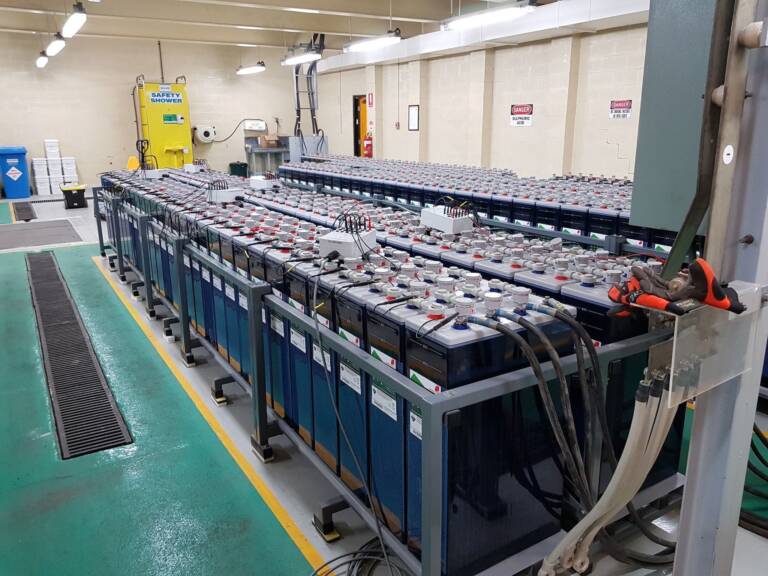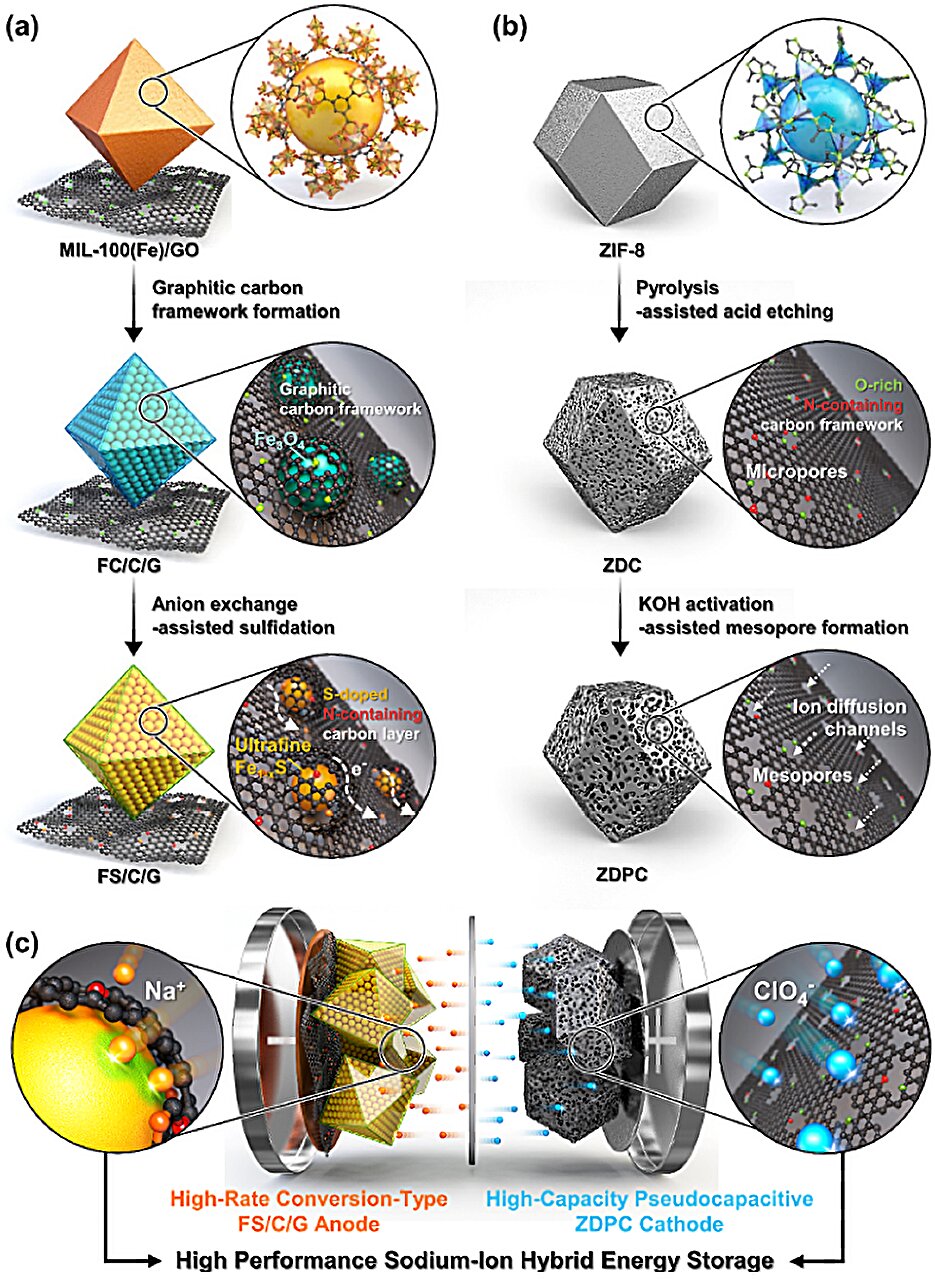Recharge batteries in a few seconds: the remarkable result of sodium batteries

Researchers at the Korea Advanced Institute of Science and Technology (KAIST) have developed a high-power sodium-ion hybrid battery that can be charged in seconds. The study was published in Energy Storage Materials.
Sodium is considered to be almost 1000 times more abundant than lithium. Therefore, sodium ion electrochemical energy storage devices are more attractive than traditional lithium ion electrochemical energy storage.
Led by Professor Jeung Ku Kang from the Department of Materials Science and Engineering, the research team integrated anode materials typically used in batteries with cathodes suitable for supercapacitors.
The combination allowed the battery to achieve high storage capacities and rapid charge-discharge rates. The study indicates that the battery may be a viable next-generation alternative to lithium-ion batteries.

Schematic synthetic procedures of high-capacity/high-rate anode and cathode materials for a sodium-ion hybrid energy storage (SIHES) and the proposed energy storage mechanisms. Synthetic procedures for (a) ultrafine iron sulfide-spiked carbon/graphene anode (FS/C/G) and (b) porous carbon-derived zeolitic imidazolate cathode materials (ZDPC). (c) Proposed mechanisms for energy storage of Na+ ions in the FS/C/G anode and ClO-4 ions in the ZDPC cathode for a SIHES. Credit: KAIST Nano Materials Simulation
Sodium ion hybrid energy storage device
Comprising the newly designed anode and cathode, the complete assembled cell forms a high-performance sodium-ion hybrid energy storage device, which exceeds the energy density of commercial lithium-ion batteries available on the market . According to the researchers, the device exhibits the power density characteristics of supercapacitors.
“Developing a hybrid battery with high energy and high power density requires improving the slow energy storage rate of battery-type anodes, as well as enhancing the relatively low capacity of supercapacitor-type cathode materials,” the team said in a statement.
Sodium batteries can meet a growing demand for energy storage
The battery can meet a growing demand for low-cost electrochemical energy storage devices, with high energy density for long operation on a single charge and fast charging power density, to meet a wide range of applications ranging from mobile electronic devices to electric vehicles (EVs) to large-scale grid systems.
Currently, sodium-ion energy storage systems are poor in terms of rechargeability, as they have a low power density, despite providing a relatively high energy density. There are currently two types of sodium storage systems available, sodium ion batteries (SIBs) and sodium ion capacitors (SICs). Therefore, the researchers focused on sodium-ion hybrid energy storage (SIHES) cells.
SIHES can utilize the different potential windows of capacitor-type cathodes and battery-type anodes. It attracted a lot of attention because this storage system, in principle, could simultaneously enable high energy density and fast charging power density.
According to the researchers, the SIHES can achieve an energy density of 247 Wh/kg and a power density of 34,748 W/kg. Professor Kang said the research represents a breakthrough in overcoming the current limitations of energy storage systems. It envisions broader applications for various electronic devices, including electric vehicles.
It will likely be useful for fast charging applications ranging from electric vehicles to smart electronic devices and aerospace technologies.ls.

Thanks to our Telegram channel you can stay updated on the publication of new Economic Scenarios articles.
The article Recharging batteries in seconds: the remarkable result of sodium batteries comes from Economic Scenarios .
This is a machine translation of a post published on Scenari Economici at the URL https://scenarieconomici.it/ricaricare-le-batterie-in-pochi-secondi-il-notevole-risultato-delle-batterie-al-sodio/ on Mon, 22 Apr 2024 05:15:52 +0000.
